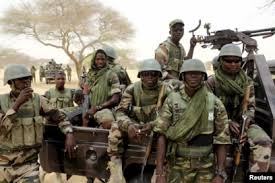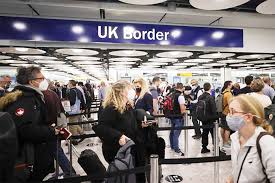The Nigerien army has announced the death of a key Boko Haram commander during a precision airstrike last week in the volatile Lake Chad basin, a region where Niger shares borders with Nigeria, Chad, and Cameroon.
In a statement released Thursday, the army confirmed that Bakura, a notorious Boko Haram leader who commanded a splinter faction of the terrorist group, was killed on August 15 during a targeted military operation in Shilawa, located in the Diffa region of southeastern Niger.
“Very early in the morning of August 15, an air force fighter aircraft launched three targeted and successive strikes on the positions Bakura used to occupy in Shilawa,” the statement read, describing the assault as a “surgical operation.”
Bakura, whose real name has been revealed as Ibrahim Mahamadu, was approximately 40 years old and originally from Nigeria. Military sources say he had been on Niger’s radar for years due to his strategic role in jihadist operations in the Lake Chad islands, where he relocated after refusing to join the rival faction, Islamic State West Africa Province (ISWAP), following the death of former Boko Haram leader Abubakar Shekau in 2021.
Bakura joined Boko Haram over 13 years ago, rising through the ranks to become one of its most feared field commanders. After Shekau’s dramatic death during internal clashes with ISWAP, Bakura led a faction loyal to the late Shekau’s ideology, resisting integration into ISWAP’s leadership.
He and his fighters were reportedly responsible for numerous deadly cross-border attacks and ambushes on both civilian and military targets in the region, including on Niger’s Bosso region, where Boko Haram launched its first assault on Nigerien soil in 2015.
The army’s statement described Bakura’s death as a “major tactical victory” in the ongoing fight against jihadist insurgencies that have plagued the region for over a decade.
Boko Haram’s insurgency began in 2009 in northeast Nigeria, aiming to establish an Islamic caliphate. The brutal campaign has since claimed over 40,000 lives and displaced more than two million people, with spillover violence affecting neighboring countries, including Niger, Chad, and Cameroon.
Despite multiple regional military efforts — including the Multinational Joint Task Force (MNJTF), made up of troops from the affected countries — the group and its offshoots continue to pose a serious threat to stability in the Lake Chad region.
While Bakura’s death marks a significant blow to Boko Haram’s Shekau-loyalist faction, analysts caution that the broader insurgency remains complex, with numerous splinter groups and evolving alliances.
The leadership vacuum could lead to further infighting or even escalation, depending on how other militant commanders respond.
Niger’s military has vowed to continue its offensive operations in the region, emphasizing the need for enhanced regional cooperation to defeat terrorism in the Sahel.
“This operation sends a clear message: Niger remains committed to securing its borders and eliminating terrorist threats, wherever they hide,” the army stated.



